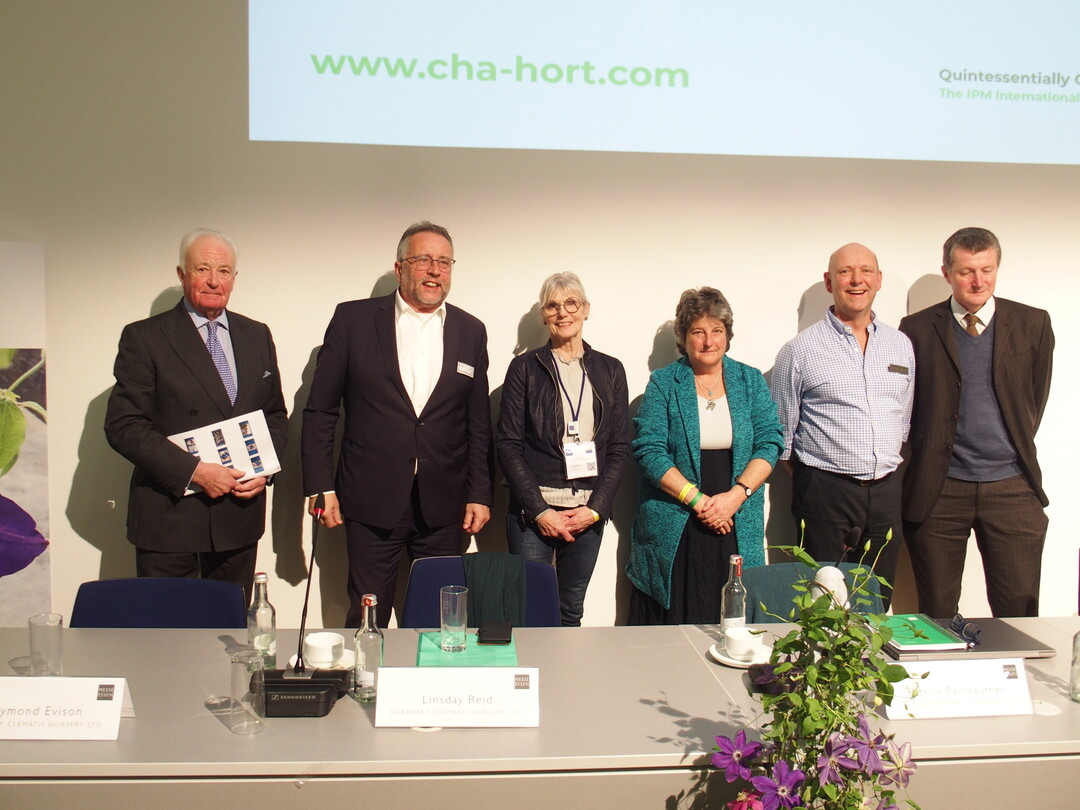Great Britain presents itself sustainable
Traditionally, the International Horticultural Forum at the IPM trade fair in Essen is held on the respective trade fair partner country, this year Great Britain, a country with a long horticultural tradition.
- Published on

Nowadays, sustainability plays an important role for British gardeners, said presenter Matthew Appleby, editor Horticulture Week. The Chelsea Flower Show and other exhibitions are important tools for showcasing high-performing, modern varieties, reported Raymond Evison, founder and owner of Guernsey Clematis Nursery, who provided insights into breeding work and clematis novelties. Sustainability, in addition to the innovative varieties, is evident in a 2,500 cu. ft. rainwater reservoir that is kept clean via filter and UV treatment for low-tide irrigation in a closed system. "In four out of five years, we are water self-sufficient," Evison says. Chemical pesticides are avoided as much as possible. That offers benefits to the plants, the employees and is less expensive. Waste is recycled as much as possible, and reusable systems are used where possible.
Sales Manager Guernsey Clematis Nursery, Lindsay Reid, cited numerous sustainability activities. Biodiversity is supported by largely avoiding the use of herbicides. A natural herbicide based on salt and vinegar is used in the greenhouses. The farm aims to be peat-free by 2025. In order to minimize the CO2 footprint, many adjustments are being made, such as the installation of energy screens, LED lighting or photovoltaic systems.
Agapanthus with potential
Patrick Fairweather, Fairweather's Nurseries, emphasized the future potential of agapanthus. The plants tolerate heat and drought and require few chemicals, tolerate winter precipitation relatively well and require low chemical, labor and energy inputs. Fairweather's Nurseries, which works closely with a grower, offers agapanthus young plants from in vitro culture. Peat-free production is possible, but agapanthus roots show much thicker roots with only 10 % peat in the substrate. Compost admixtures are immensely important, as the microorganisms they contain significantly increase plant health.
On the path to energy neutrality
Dr. Elisabeth Warham, Department for international Trade, discussed the strict government targets to make the UK energy neutral by 2050. For all major sectors, which include horticulture, that means zero emissions. Victoria Clarke, Department for Environmental, Food and Rural Affairs, addressed the changing export and import conditions post-Brexit, published as the Target Operation Model (TOM), which will be introduced from 2023 and will provide an opportunity for trade feedback.


